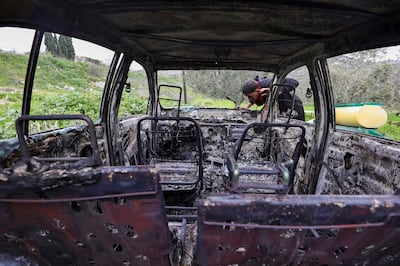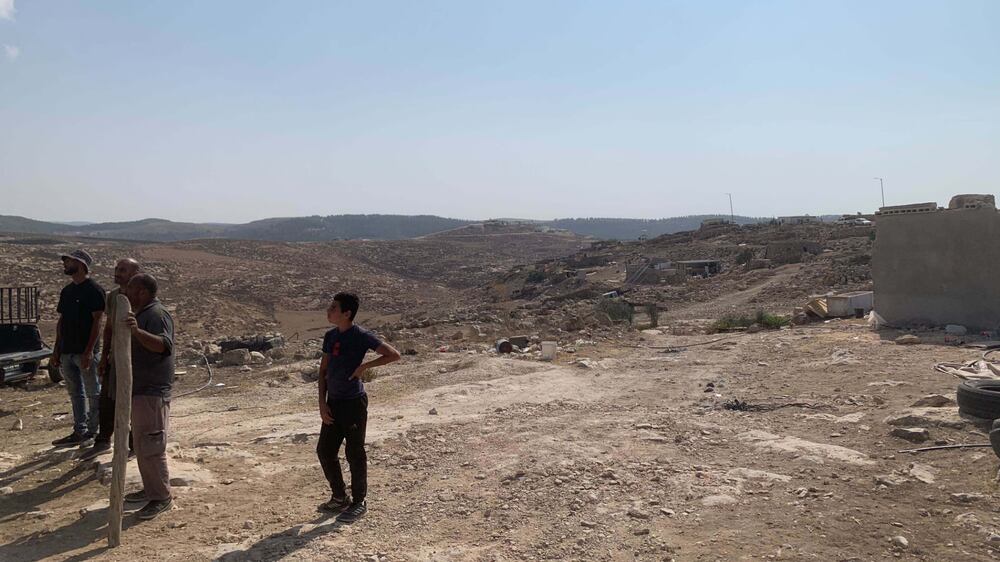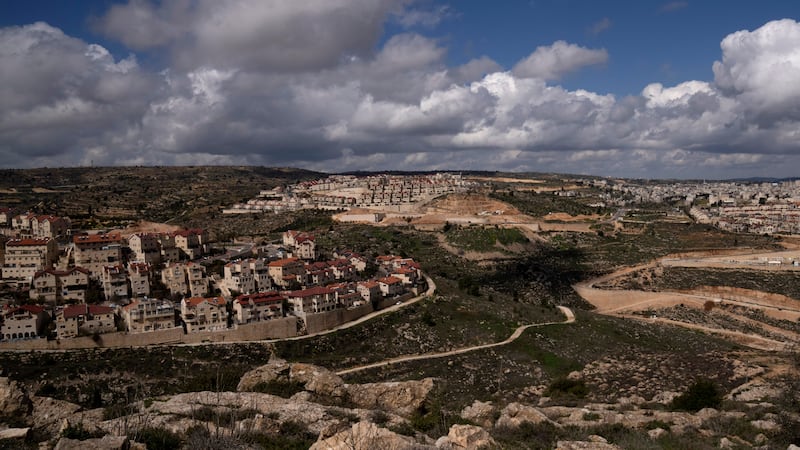Live updates: Follow the latest on Israel-Gaza
The US has imposed sanctions on two Israeli settler outposts in the occupied West Bank as well as three settlers, the Treasury Department announced on Thursday.
Washington has previously sanctioned extremist Israeli settlers but the actions against Moshes Farm and Zvis Farm are the first time the US has issued punitive measures against an entire outpost.
The settlements and outposts are communities built on land occupied by Israel since the 1967 war. They are considered illegal under international law but Israel contests this.
In February, President Joe Biden's administration imposed sanctions on four extremist settlers accused of engaging in violence against Palestinians in the occupied West Bank.
The measures come amid increasing pressure from the Biden administration on Israeli Prime Minister Benjamin Netanyahu to bring about a ceasefire in Gaza, where more than 31,300 people have been killed, Palestinian health authorities say.
The two leaders have in recent days publicly expressed differing views on their supposed “red lines” in the conflict, with Mr Biden warning Mr Netanyahu against an all-out offensive in Rafah, a city in the south of Gaza where about 1.4 million people have sought shelter.
Last month, the Biden administration reversed a Trump-era policy by calling Israeli settlements in the occupied West Bank “inconsistent with international law”.

The State Department said the outposts in question have been used by settlers as bases from which attacks on Palestinians living in nearby villages have been launched.
Moshes Farm lies east of Nablus, in the north of the West Bank. The US accuses its owner, Moshe Sharvit, of harassing and threatening Palestinians.
“In October 2023, Sharvit issued a threat against the residents of the Palestinian village of Ein Shibli and while armed ordered them to leave their homes. This threat resulted in up to 100 Palestinian civilians fleeing their village in fear for their lives,” the State Department said.
Zvis Farm is near the settlement of Halamish, north-west of Ramallah, and is owned by Zvi Bar Yosef.
The US claims Mr Bar Yosef has “engaged in repeated violence and attempts to engage in violence” against Palestinians in the West Bank.
Tension in the West Bank has been high since Hamas's attack on southern Israel on October 7 and there has been increased incidences of settler-led violence against Palestinians.
Israeli settler violence driving Palestinians from their homes – video
Israeli settler violence driving Palestinians from their homes

More than 360 Palestinians have been killed in the territory since the beginning of October, according to the UN Office for the Co-ordination of Humanitarian Affairs.
“There is no justification for extremist violence against civilians or forcing families from their homes, whatever their national origin, ethnicity, race or religion,” the State Department said in a release.
“The United States is committed to enduring peace and prosperity for Palestinians and Israelis alike and will continue to use all available tools to promote accountability for those engaging in actions that threaten the peace, security and stability of the West Bank.”
Americans for Peace Now, a progressive non-profit dedicated to achieving Palestinian-Israeli peace, welcomed the latest sanctions.
“For too long, illegal outposts have served as launch pads for settler violence,” the non-profit’s president and chief executive Hadar Susskind said.
“These actions, including freezing assets and imposing visa bans, demonstrate the United States’ firm commitment to curbing settler violence.”






